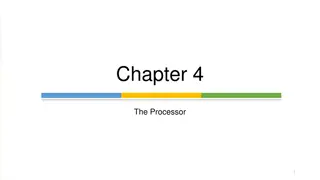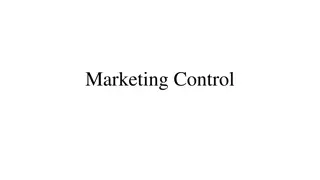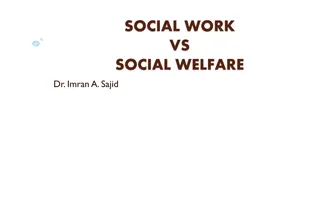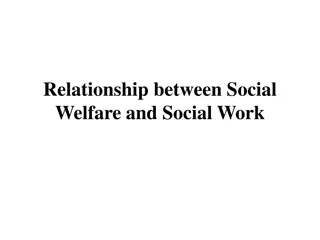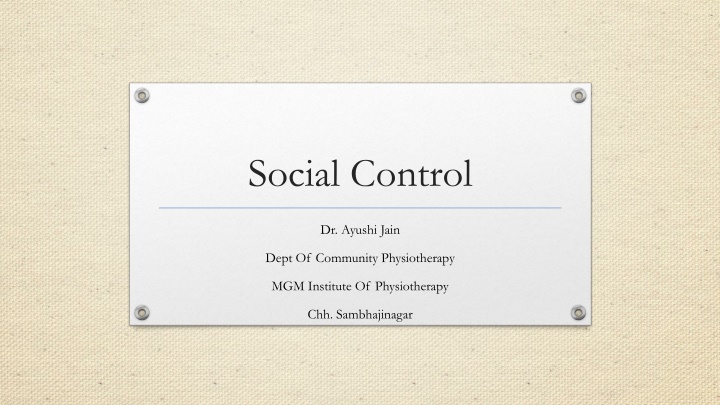
Social Control: Definition, Types, and Importance
Explore the concept of social control, its definition, and the need for maintaining social order and unity. Discover the types of social control, including direct and indirect methods, as well as positive and negative approaches. Learn how social control influences individual behavior and societal cohesion.
Download Presentation

Please find below an Image/Link to download the presentation.
The content on the website is provided AS IS for your information and personal use only. It may not be sold, licensed, or shared on other websites without obtaining consent from the author. If you encounter any issues during the download, it is possible that the publisher has removed the file from their server.
You are allowed to download the files provided on this website for personal or commercial use, subject to the condition that they are used lawfully. All files are the property of their respective owners.
The content on the website is provided AS IS for your information and personal use only. It may not be sold, licensed, or shared on other websites without obtaining consent from the author.
E N D
Presentation Transcript
Social Control Dr. Ayushi Jain Dept Of Community Physiotherapy MGM Institute Of Physiotherapy Chh. Sambhajinagar
Definition It is the way in which entire social order coheres and maintains itself, how it operates, as a whole or as a changing equilibrium Maciver and Page It is a social process by which the individual makes group responsive and by which social organisation is built and maintains Lane
Need of Social Control 1. To maintain the old social order: Members in the society behave in accordance with social order. Although enforcement of the old order in a changing society may hinder social progress, yet it is necessary to maintain continuity and uniformity in the society. Eg: The old age people in the family enforce their ideas over the children. 2. To establish social unity/social cohesion/social solidarity: To regulate behaviour in accordance with established norms which brings uniformity of behaviour and promotes the unity among the individuals.
Need of Social Control 3. To regulate or to control individual behaviour: No two individuals are alike in his or her attitudes, interest, habits, ideas. Every movement of them is a possibility of clashes, conflicts between them. As man become too selfcentered social control is necessary to preserve the social interest and satisfy commands. 4. To provide social sanction: If the individual violates the social norms, he is compelled to follow certain measures to control his behaviour. 5. To check cultural maladjustments: Society is subjected to change for every movement. New inventions, new discoveries, new philosophies continue to take origin in the society.
Types of social control Karl Mannheim classified social control into two types: a. Direct social control: It is the control exercises upon the individual by the reactions of the people who are living within the proximity. Eg: Family, neighbourhood, and playgroup. b. Indirect social control: The control is exercised upon the individual by the factors like customs, laws, opinions, which affects the entire social system. Eg: Secondary group. Traditions, institutions, customs, rationalised behaviour
Kimbell Young classified social control into: Positive social control: Rewards and incentives have an immense value upon the activities of the individual. Eg: Rewards, fame, respect, recognition, positive or constructive criticism. Negative social control: A person is prevented from doing something wrong by threat of punishment. Fear of these punishments helps the people to prevent from violating the socially accepted customs, traditions, values and ideals. Eg: Verbal punishment, defamation, negative criticism.
Informal social control: Socially desirable behaviour will be performed, where the individual will follow the norms, standards formed by the society. The primary group will formulate the controlling measures. Eg: mores, traditions, customs, etc. Formal social control: They are specifically designed for control. Secondary groups like social institution formulates the norms, rules and regulations to control the people s behaviour within the society. Eg: Law, police, army, code, custody.
According to Hayes: a. Control by sanction. Eg: Awarding the obedient and punishing the miscreant. b. Control by socialisation and education.
Formal Agencies of Social Control Law Education Coercion
Informal Agencies of Social Control Beliefs Social suggestions Ideologies Communal codes
Communal codes Custom Fashion Folkways Leadership Mores Family Morals Public opinion Rituals Humour and satire Religion Literature Art





